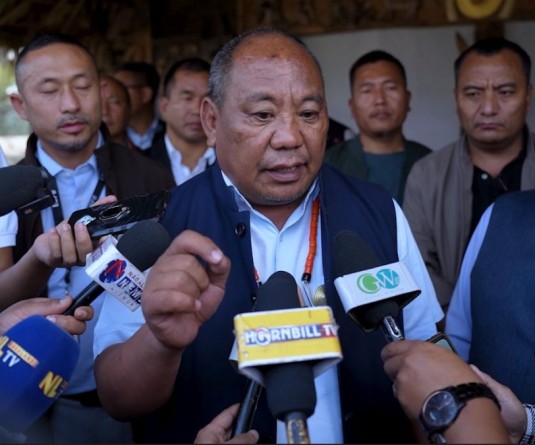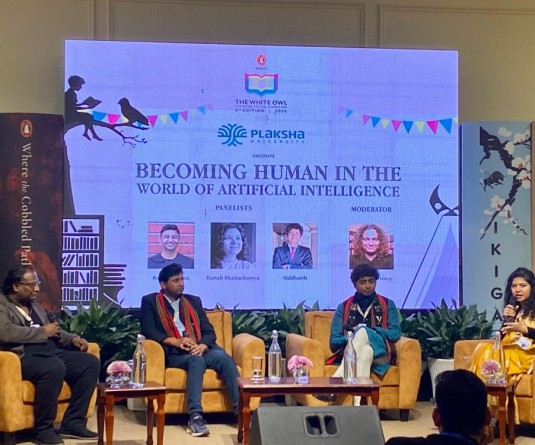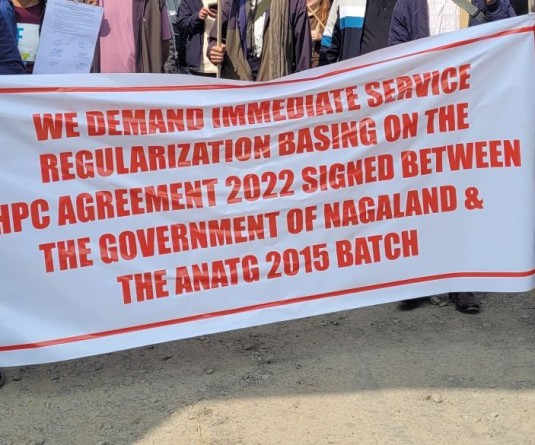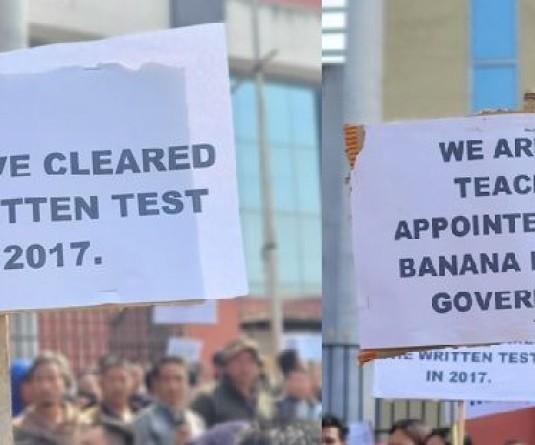Dr Sedevi Angami delivering the 2nd Tuisem A Shishak Lecture at the Bundrock Chapel Auditorium Patkai Christian College (Autonomous) on March 25. (Morung Photo)
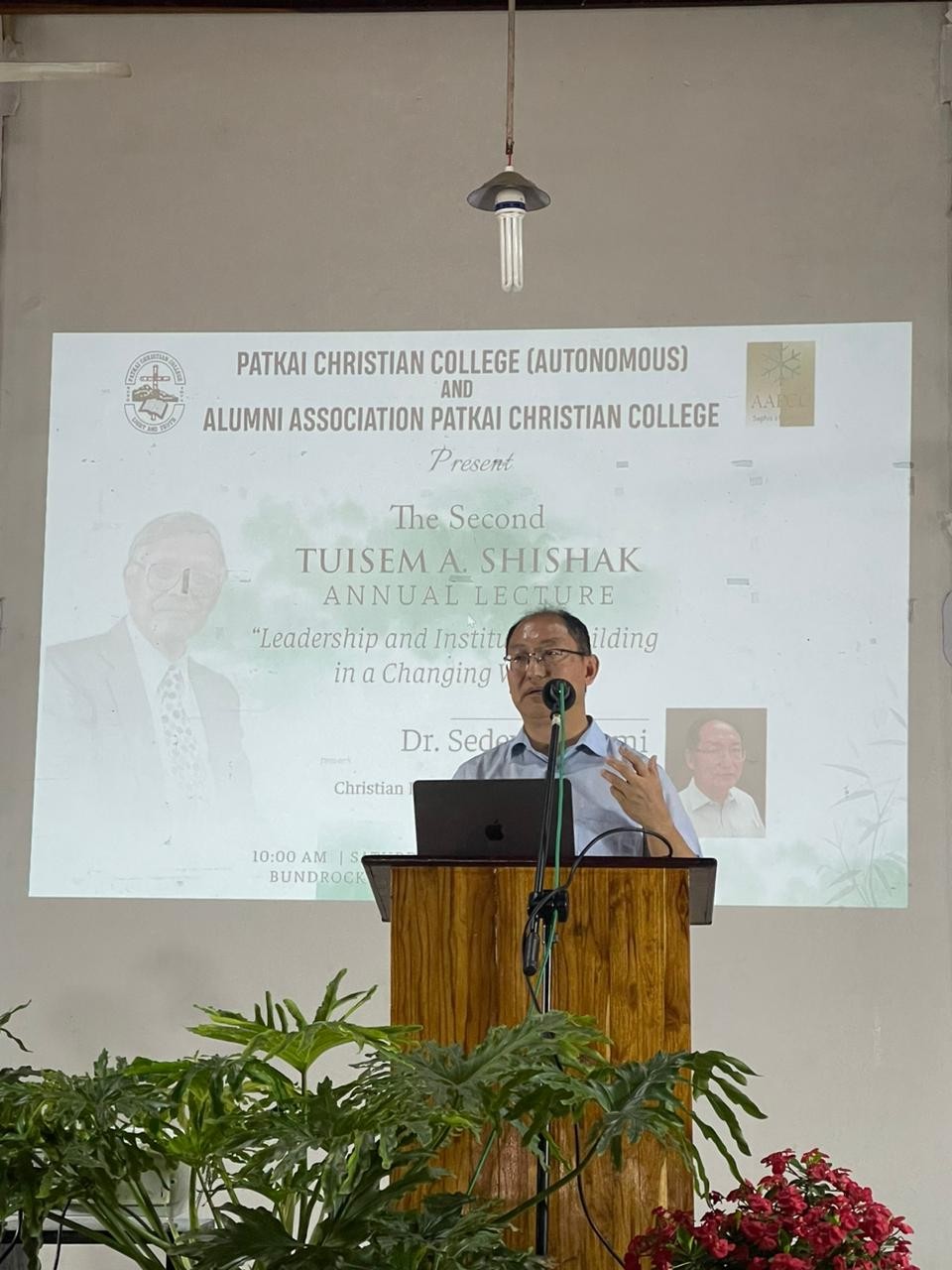
Morung Express News
Patkai | March 25
Great nations invest in excellent institutions to generate the best minds who become the engines of growth, asserted Dr Sedevi Angami, underscoring how vital it is in growth of nation.
Good institutions are centres of learning which challenge the current thinking and enable continuous learning processes to address the needs of a changing society, he added, delivering the 2nd Tuisem A Shishak Lecture here at the Bundrock Chapel Auditorium Patkai Christian College (Autonomous) on March 25.
Delineating on ‘Leadership and Institution Building in A Changing World’ in the annual lecture series jointly organised by the PCC and its Alumni Association, Dr Sedevi took the attendees on a comprehensive journey of understanding the essence of good institution, vibrant leadership and institution growth.
Throughout the lecture, the Director, Christian Institute of Health Sciences and Research (CIHSR), approached the theme from biblical and worldview expounding on its real-time applicability.
Why good institution?
For Dr Sedevi, good institutions are vital to ensure that there is continuity and consolidation of precious knowledge and skills for ‘future generations to benefit and draw from.’
They also provide space for a community of learners and peers who challenge each other and support their growth, he asserted.
Among others, it included a good vision that provides a panoramic view to its staff and give direction while the foundational values serve as the guiding principles.
For him, good values are justice, servanthood, flat hierarchy, downward mobility and humility, freedom in Christ, transparency, authenticity, and excellence.
While being firm on certain foundational values and non-negotiables, Dr Sedevi also noted that good institutions must be adaptable and relevant to the times.
Further, he noted that good governance structures enable – transparency, accountability, fairness, and responsibility.
The CIHSR Director also noted that a growing institution should have infrastructures and facilities that is ‘future ready’ or kept in pace with the rapidity of change.
Stating that institutes need to have dynamic mechanisms to grow its human resource, he cited the ‘goal of nurturing people’ from the Bible (Col 1:28) and among four models of raising people, batted for ‘High Expectation’ backed by ‘High Support’ which would results in excellence.
Institutions need to aim at exponential and not just small incremental growth by being agile, dynamic and adapt, Dr Sedevi said. “Current changes in the world are so rapid that speed is of the essence.”
Why good leadership?
Good leadership is crucial for any institutions to grow and this involves intentionally identifying and equipping such leader, the Director postulated.
“One good person in the right place makes all the difference. Investing in that one good person can make a significant difference. This might seem biased and partial at times, but is necessary,” he stated.
To this end, he noted that leadership skills are different from specific subject knowledge and batted for designing the curriculum for leadership at each level.
He further argued that there needs to be an intentional ‘Succession Planning’ for leadership transition.
Dr Sedevi also recommended ‘Hands on and Onsite’ leaders following the MBWA (management by walking around) strategy to understand and take accurate decisions that impact the organisation.
Another quality of good leadership he underscored was that a leader should not be afraid of conflict.“Leaders should bell the cat and are not afraid of conflicts for conflict is inevitable,” he added. ‘They should take responsibility and not pass the buck and must not be averse to taking the difficult decision with sensitivity.’
Achieving institutional growth
Without a growth mind-set, an institution would stagnate, Dr Sedevi implied indicating the importance of having a priorroadmap to excellence ready.
Among others, he suggested for ‘Growth Dashboard’ displaying Benchmarks, Reference standards, Measurement of growth etc.
It also needs to create new KPIs (key performance indicators) and must have engaging reports, critical evaluation of events and monitoring of actions, he added.
The Director also stated that people grow at different pace at an institute and called for understanding the profile of individuals and deciding the paces accordingly.
“There must be active transmission of knowledge and skills to our staff and empower them as fast as possible. 10 good people can achieve more than one great person,” he added. “The Jesus training methodology of 5000 - 12 - 3 is very effective in generating the right leaders for the institution.”
Besides, Dr Sedevi called for designing trainings with threegenerations of learners in mind; retreating, reviewing and reflecting constantly on any new activity; and frequent evaluation.
Further noting that teams and creating ownership are absolutely essential for the institution to be effective, he added: “We need to create teams quickly or task forces for any project or assignment. When individuals grow in a team, the institution grows.”
Finally, for an institution to grow, it needs to have a vibrant flourishing community, he noted, adding: “In our context, we need to refuse to be exclusive, discourage tribal unions, Tribal competition, be inclusive and consider the minorities as a priority.”
He also expounded on how plan for perpetual engagement with the alumni and having a strategic plan are paramount for institutional growth.
In a lively interactive session moderated by AG Samuel, a faculty member of PCC’s political science department after the presentation, Dr Sedevi further elaborated and clarified to queries related the lecture posed by the faculty, students and other attendees.
Earlier, PCC Principal Dr Thepfuvilie Peirü welcomed the attendees and described the lecture as another ‘red letter day’ for the college.
The Founder and Principal Emeritus of PCC, Dr Tuisem A Shishak, meanwhile, noted that to be a strong institution, the college must to lead from the front and needs to ‘wake up’ in some areas.
The Tuisem A Shishak annual lecture was instituted in 2022 in recognition of his contributions in the field of education and his vision to provide quality education for the highlanders of Indo-Myanmar, particularly in the North-East.


